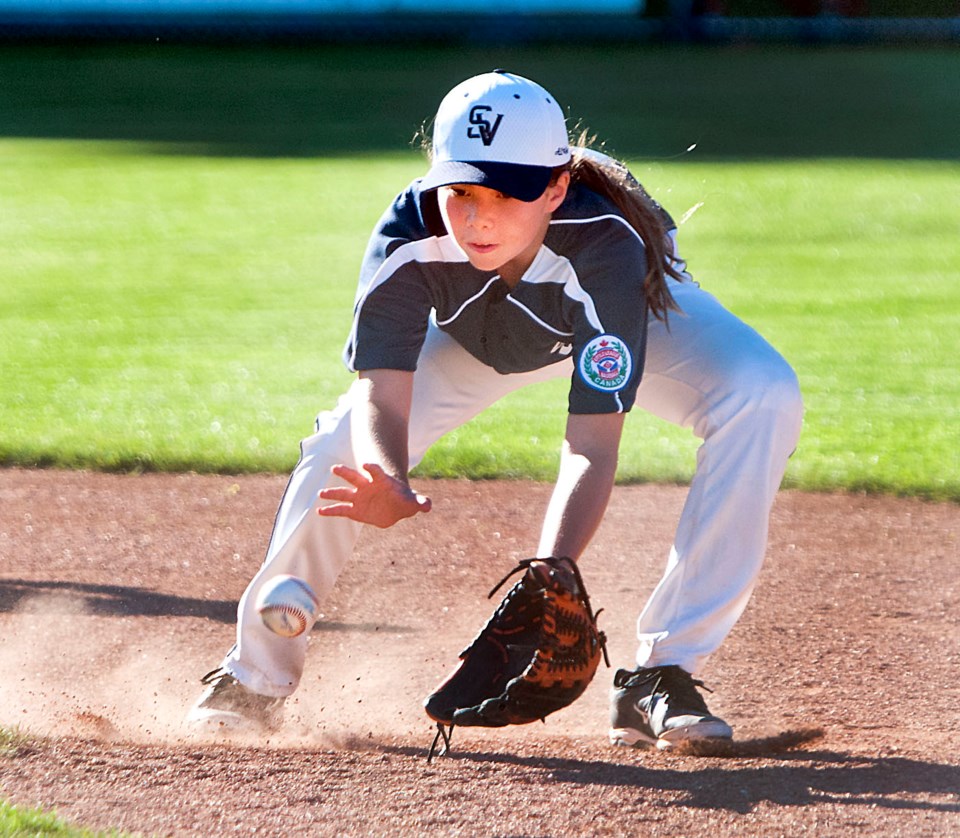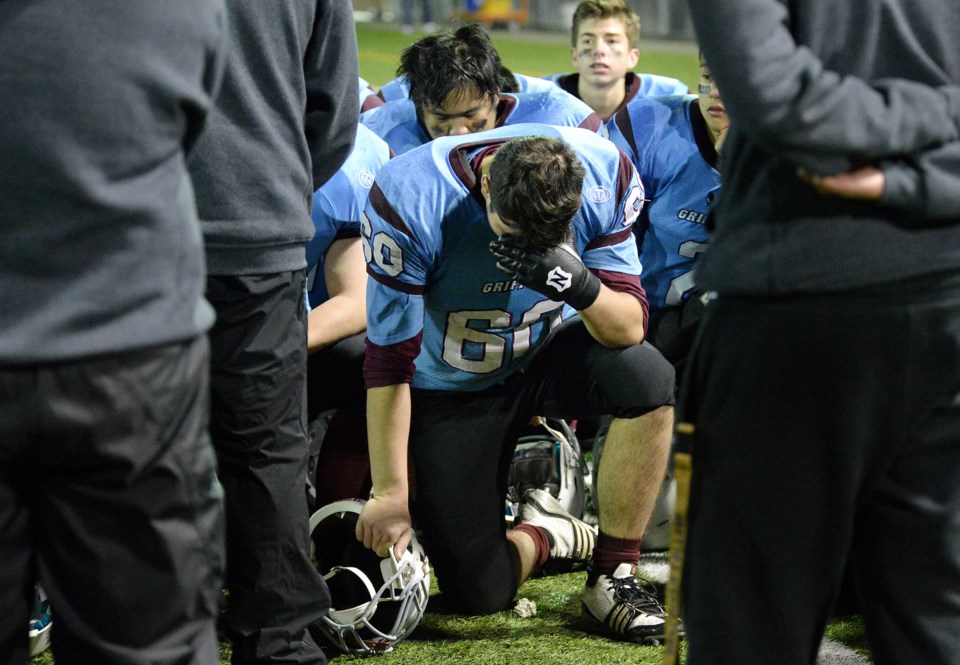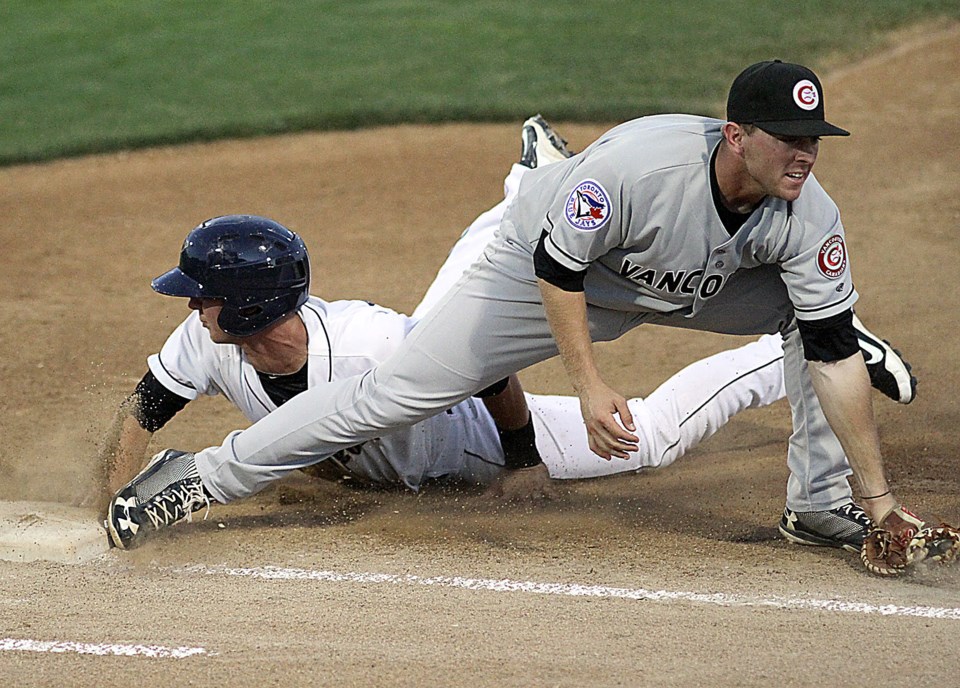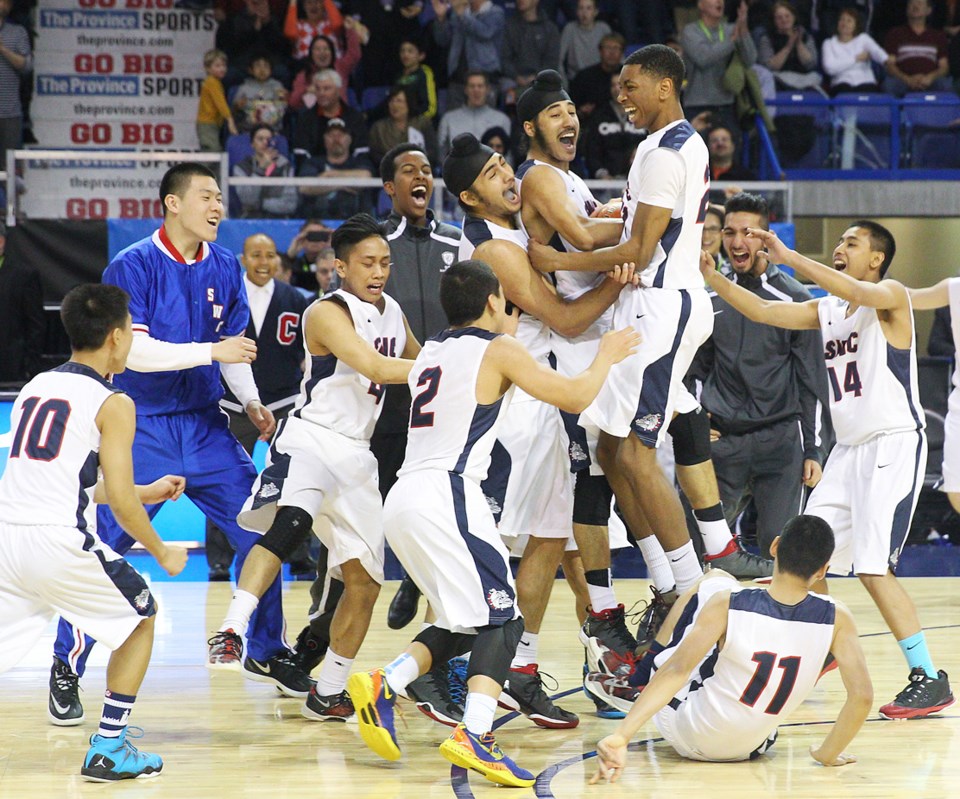In addition to sweetheart storylines and Sochi’s twin toilets, there were small and significant delights from the sports world this past year. Plus, a big, sexist shortfall.
In Vancouver, a Little League team hit the international stage, a deserving basketball program won it all, a near-winless football program almost won the biggest game of all, the city continued its love affair with a Toronto franchise despite the end of a three-year winning streak, and a prince returned to reign. Plus: the turf double-standard.
Here’s what we learned in 2014:
1. We can all brag about throwing like a girl
In 2014, pitchers and Little League baseball players were pleased to say that, yes, they do throw like a girl.

South Â鶹´«Ă˝Ół»Little League first baseman Emma MarchĚýĚýat the provincial championship this summer and then, on the international stage at Williamsport, Pa., 13-year-old fastballer Mo’ne Davis captivated the continent with her command on the mound and confidence in everything she did. She became the first girl to pitch a shutout at the World Series, wasĚýĚýand was on the cover ofĚýSports Illustrated.Ěý (Which I will single-handedly make a collector’s item by buying them all.)
Davis and MarchĚýĚýat the international baseball championship as the only two girls in the tournament. South Â鶹´«Ă˝Ół»Little League represented Canada and finished 0-3.Ěý
Ěý
Ěý
2. It was the best fun to have a dog in the fight
In past seasons, the Churchill Bulldogs have won recognition for their sportsmanship, highlight-reel player Mindy Minhas and 2013 Coach of the Year, Rick Lopez. And at the inaugural AAAA provincial championship in March this year, the Bulldogs played their best basketball at the best time and.
Ěý
3. Losing is agonizing
Victory brings thrills, a loss means agony. This we know and this is what the varsity Hamber Griffins learned in November when they Ěýthe Tier II B.C. football championship in a 7-6 nail-biter that saw the final four minutes on the game clock take three quarters of an hour to play out.Ěý

The coaches, including Bobby Gibson, were correct when they said the Griffins — whoĚýĚýtheir first playoff game and advanced to the championship after four losing seasons since launching in 2010 — have every reason to hold their heads high. Many players, a gaggle of cheerleaders and a few coaches, too, cried during their post-championship huddle. Take a knee, embrace the agony. Let it fuel you next season, Hamber.
Ěý
4. Threepeat is a word when it happens to your team
The Â鶹´«Ă˝Ół»Canadians came close to winning four consecutive Northwest League championships but were in the best-of-three final this September.

In our city, the success of the Canadians and their well-run front office (in addition to the beauty of Nat Bailey Stadium) has helped bolster the appreciation for the Toronto Blue Jays, a would-be contender in a self-aggrandizing sports market often loathed by ours. As the only two professional baseball teams in the country, the single-A and MLB teams are worth a box of crackerjacks.
Ěý
Ěý
Ěý
Ěý
Ěý
5. We love Linden and… lobster
Trevor Linden returned to his princedom, this time anointed king as the Canucks president. No. 16 is still loved by his subjects, evidenced by no one setting a police car alight over a hockey game. Also, resale Canucks tickets are closer to affordable, but if the first line lights it up, this could change. For now, enjoy the lobster rolls and pour one out for the unionized service workers who were dismissed in the name of gourmet fare.
Ěý
6. If you’re a female soccer star, you’re worth less to FIFA
The 2015 Women’s World Cup will be played at B.C. Place and across the country on artificial turf fields, a surface male and female players consider substandard. Women will have to play on the fake grass while men would never settle for the second-class “mocksoil.” Despite a lawsuit filed this year in Ontario over what international soccer stars consider a double-standard, neither Soccer Canada nor FIFA will spend the money to make the requested changes.
Because of this unnecessary embarrassment, turf may now be the most controversial and non-organic produce sown in B.C. At an open house for a $10.5 million soccer upgrade at UBC, an engineer named Dave would not give his last name despite identifying himself as an expert consultant who designs soccer fields, including the ones planned at the university. The plans (attractive, low-profile buildings and open space for the public) include two soccer fields, both of them grass, both which will be used by Soccer Canada and the Â鶹´«Ă˝Ół»Whitecaps as well as the Thunderbirds.
“The irony isn’t lost on us,” said Dave of no last name. While the university and Whitecaps’ future is on grass, the future of the women’s World Cup remains on turf, which many players argue amounts to second-class material for elite competitors who should be recognized as equals.



